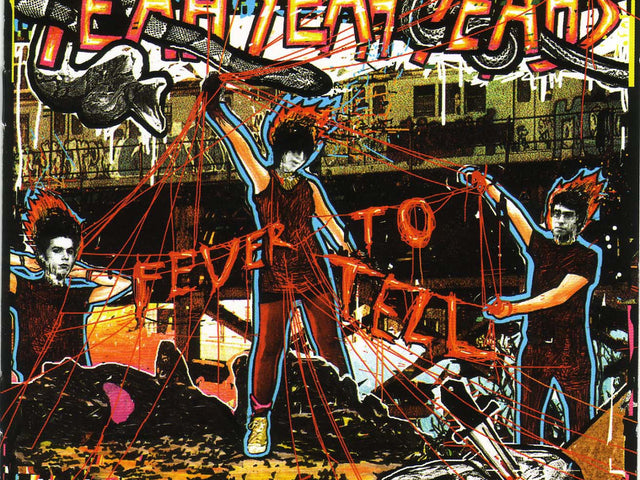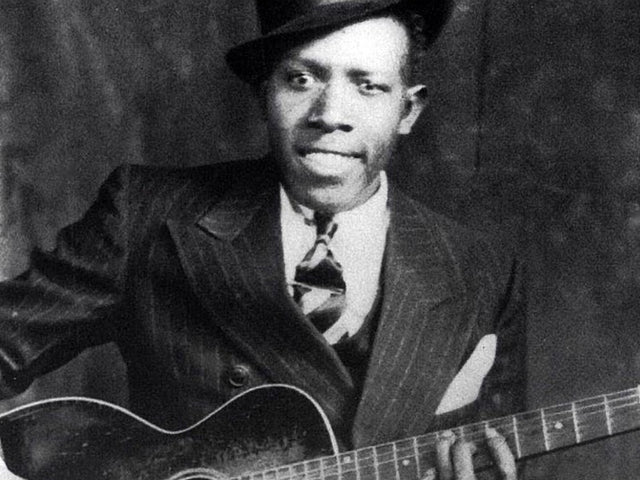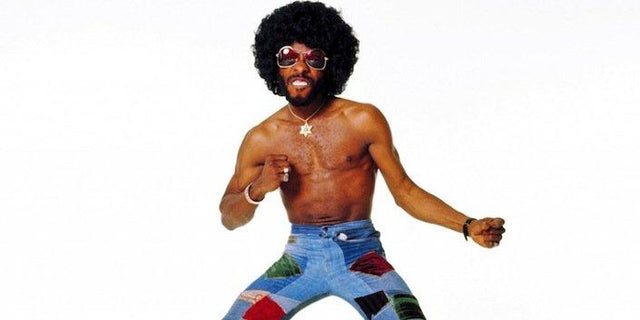90年代中頃以来、音楽やポップカルチャー全体で「ディスコの復活」という波が次々と押し寄せています。それでも、このジャンルは理想的なコンテキスト、すなわち良いシステムと良いDJセットなしではナビゲートするのが難しいものです。ソウルや最近のダンス音楽に深く入っていく音楽愛好家は、最終的にはディスコを無視することが難しくなるでしょう。2000年代の「(再)編集」の狂潮は、すべてのプロデューサーやDJが70年代のクラシックや隠れた名曲を現代のダンスサウンドに合わせて持ち込むことを見ましたが、元のバージョンを見つける価値のある定番の曲もあります。
ディスコ時代はまた、1曲を片面全体に広げる12インチシングルを生み出しました。これにより、LPよりもはるかに大きな音量の製品が生まれました。この形式は、DJ向けに作られたため、すぐにこのジャンルを支配するようになりました。それに従い、ディスコLPは、1つのヒット曲とほとんどがフィラーのものから、感傷的なバラードとダンスグルーヴに分かれたアルバム、さらには強力で時には見過ごされがちなフルレングスの作品まで、多岐にわたります。これらの混合録音を探求することは、しばしば、ディスコオタクたちが夢中になっている250ドルのオリジナルプロモ12インチよりも報われることが多く、手に入りやすいものとなります。ここでは、あなたのコレクションにしっかりとした基盤を与えるための10枚の基礎的なディスコアルバムを紹介します。

Donna Summer: Love To Love You Baby
“ディスコの女王”はジャンルが提供する魅力の一面に過ぎないが、1975年のこのアルバムのリリースは否定できない。第一面は、サマーとプロデューサーのジョルジオ・モラーラーによる悪名高い、快楽満ち溢れ、常に盛り上がるグルーヴを持つ16分以上のタイトル曲で、1970年代後半の快楽主義的なトーンを設定した。それは、彼らが後に知られるようになる急速なロボットグルーヴよりもしなやかで遅めだが、その最大限のスコープはもちろんのこと、楽器のブレイクダウンや、あからさまなセクシュアリティや反復の優先順位は、非常に先を見越したものであった。

Gloria Gaynor: Never Can Say Goodbye
「I Will Survive」以上の魅力を持つグロリア・ゲイナーがここにいる(どれほど楽しく、歴史的に重要かは別として)。彼女は1965年からソウル曲を作り続け、10年後にこのアルバムで勝利のディスコフォーミュラを見出すこととなる。第一面は、トム・モールトンによってミックスされた「Honey Bee」、「Never Can Say Goodbye」、および「Reach Out」のノンストップのブレンドである。モータウンのメロディは馴染みがあるが、テンポ、グルーヴ、制作は1975年には革命的に思えたかもしれない。伝統的な曲の構造はそのままだが、メドレーのシームレスさはクラブ音楽のトランスを誘発する特性を再現する最良の近似である。

First Choice: Delusions
フィラデルフィア出身のベテラン・ソウルシンガー、ファースト・チョイスは、強力な素材のアルバムを作成する才能を持っており、同時に次々とディスコのヒットを生み出していった。“Doctor Love”はクラブでのヒットであったが、“Let No Man Put Asunder”は本物の賛美歌であり、ハウス音楽を予見することにおいて他のトラックよりもはるかに重要である。ロシェル・フレミングの挑戦的なリードボーカルは、80年代以降無数のプロデューサーによって徹底的に分析され、再利用された。曲のベースラインは、ハウス音楽の初期のクロスオーバーヒットの一つ、スティーブ“シルク”ハーレイの“Jack Your Body”にも登場した。ファースト・チョイスはダンス音楽のエーテルに存在し、もしあなたが踊りに出かけたことがあれば、彼らと接触したことがあるに違いない。

Change: The Glow of Love
チェンジは、イタリアとアメリカのミュージシャンによる集団で、ルーサー・バンドロスの声を紹介するものである。彼がソロになりスーパースターとなる前のことだ。グループの敏捷な演奏とソウルフルな精神は、「A Lover's Holiday」や楽しいタイトル曲でクラブのヒットを生み出した。たとえそれがマクファデンとホワイトヘッドの賛美歌「Ain't No Stoppin’ Us Now」のような、より明確で個人的なベクトルのアップリフティングなディスコであるとしても。

Sylvester: Step II
シルベスターの1978年のリリースは、彼のクィアなサンフランシスコ的感性と比類なきファルセットを持った、よりハードで電子的な“ユーロ”系ディスコのストレインを結びつけた。これはシルベスターの本当のブレイクアウトの瞬間であり、彼のブルース、ロック、ソウル、共産主義のドラッグ団体の日々の間に位置しているが、その後2年後にハイ・エナジーへと迅速に移行する前である。“You Make Me Feel (Mighty Real)”と“Dance (Disco Heat)”はモンスター・トラックであるが、アルバムのセカンドサイドは、バラードから“Was it Something That I Said”の低く控えめなファンクまで、シンガーの幅を示している。これは、ジョスリン・ブラウンのクラシック“Somebody Else’s Guy”を彷彿とさせるシルベスターの低音域の珍しい味わいである。

V/A: Philadelphia Classics
1977年にリリースされたPhiladelphia Classics LPは、トム・モールトンによるフィラデルフィア・インターナショナル・レコード(オージェイズ、ハロルド・メルヴィンとザ・ブルーノーツ、スリー・ディグリーズなど)のダンスフロアのヒットの古典的なミックスをまとめたものである。それには、1973年のトラックで、ほぼディスコのグラウンドゼロであるMFSBの“Love Is The Message”が含まれている。PIRレーベルのハウス・バッキング・バンドのドラマーであるアーリー・ヤングが、彼のシグネチャーである四つ打ちスタイル(すべてのビートでキックドラムを叩き、高ハットでオフビートを引き出す)を開発して以来、フィリーはディスコの台頭に不可欠な役割を果たした。この“兄弟の愛の街”から生まれた多くの古典は、もともとは“メッセージ”ソングとして発信されたが、今でもソウルフルで実質的なダンスミュージックのテンプレートを形成している。

Loleatta Holloway: Queen of the Night
Queen of the Nightでは、あなたはそのゲームの頂点に立つ典型的なディスコ・ディーヴァの声を得る。ホロウェイのボーカルは常に抑制されず、激しく、ゴスペルに強く依存していた。このアルバムには「I May Not Be There When You Want Me」と「Catch Me On The Rebound」というクラシックが収められている。後者には、スポーツを浮気と捉える延長混合比喩がある。アルバムの作詞・制作のクレジットはオールスターレベルであり、バニー・シグラー、ノーマン・ハリス、トム・モールトンといったジャンルの重鎮が貢献している(ドラマーはまたしてもアーリー・ヤングである)。

Chic: C'est Chic
ナイル・ロジャースとバーナード・エドワーズによる1978年のチックのセカンドアルバムは、パーティージャムに新たな洗練をもたらした。その三つの大きなシングルの中で、「I Want Your Love」は最も贅沢で持続的である。しかし、結婚式のDJでの定番である「Le Freak」でさえ、補完的な部分を切り替えることからギターとベースのリフを二重奏にすることや、弦楽器による盛り上がりなど、あなたを戻させる十分な巧妙なタッチがある。

Sister Sledge: We Are Family
ヒットに満ちたこのアルバムは、シスター・スレッジの最も有名で力強いリリースである。これは、チック組織が制作した他の何よりも洗練され、フックに富み、完璧な構造を持っている。このアルバムは、ウィル・スミスに承認された「He’s The Greatest Dancer」で始まる。続いて、「Lost In Music」といった、ナイトライフの精神への最も詩的に完璧な賛歌の一つが続く(「生き生きとしている / 9時から5時の仕事を辞めた」)。当然、この記録の中心的なトラックはタイトル曲であり、妹の絆、愛、統一を祝う力強いピアノ主体の賛歌である。その中の隠れた宝は「Thinking of You」であり、エアリーなミッドテンポのトラックである。

Cerrone: Supernature
パリ出身のドラマー・作家・プロデューサーであるマーク・セローニの3枚目のアルバムは、サイエンスフィクションと重いシンセの層を世界中のクラブにもたらし、シングルが支配するジャンルにおいて最も統一感のあるアルバムの一つを作成した。想起させる、宇宙的なインストゥルメンタルは、「Give Me Love」のようなよりストレートなディスコトラックと混ざり合う。タイトル曲は、ビルボードのダンスヒットのナンバーワンであり、アップデートされ、カバーされ、リミックスされたが、ここにあるオリジナルの9分バージョンは依然として素晴らしい音を持っている。ダフト・パンクのDiscoveryアルバムのファンは、このアルバムのグルーヴに広がる類似のビジョンを見出すだろう。
ルーク・ブラッドリーはカナダの作家で、彼の作品はRacked, Esquire, Vice, Baltimore City Paper, DJ Mag, Consequence of Sound, The Classical Magazineなどに掲載されています。
Related Articles
クラブに参加!
今すぐ参加、44ドルから教師向け、学生、軍のメンバー、医療専門家、& ファーストレスポンダーのための独占15%オフ - 認証を受けよう!











